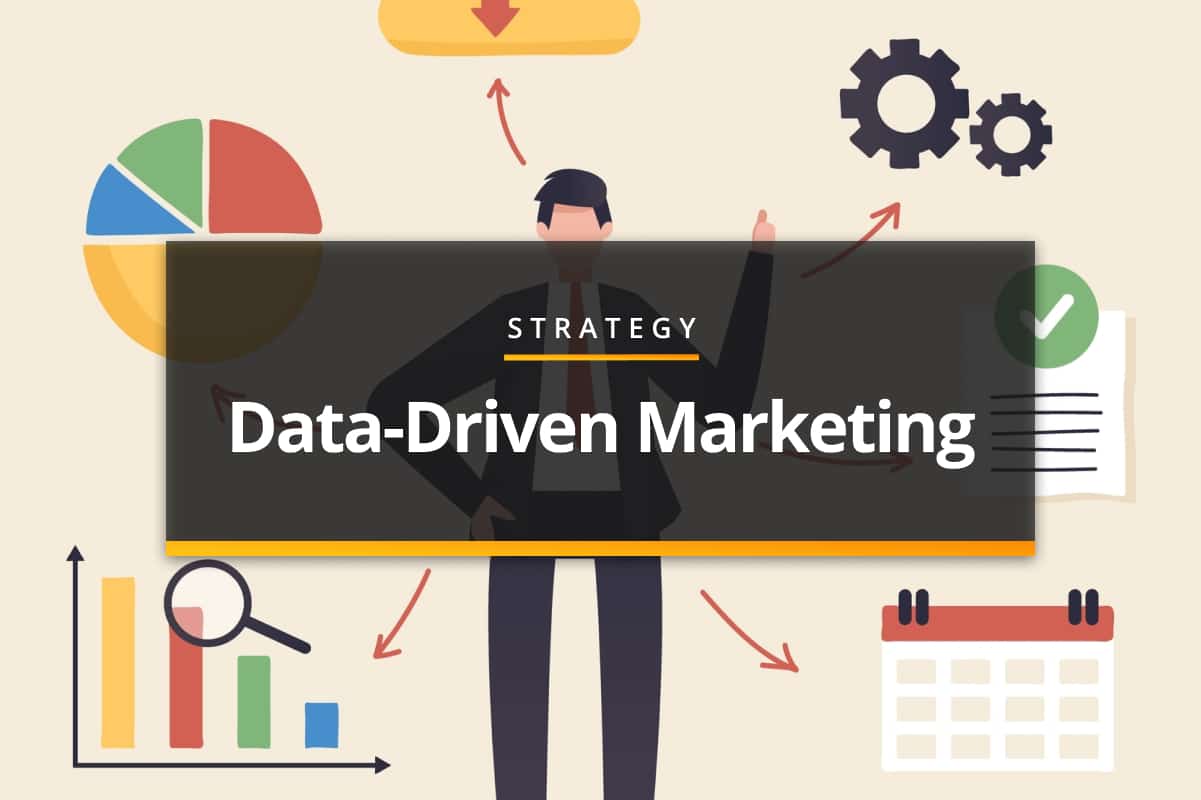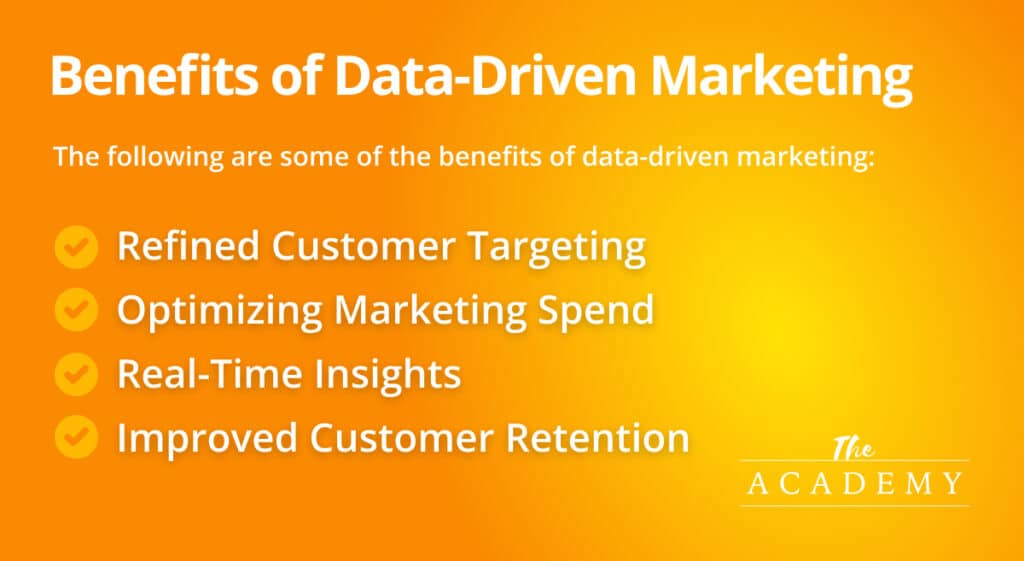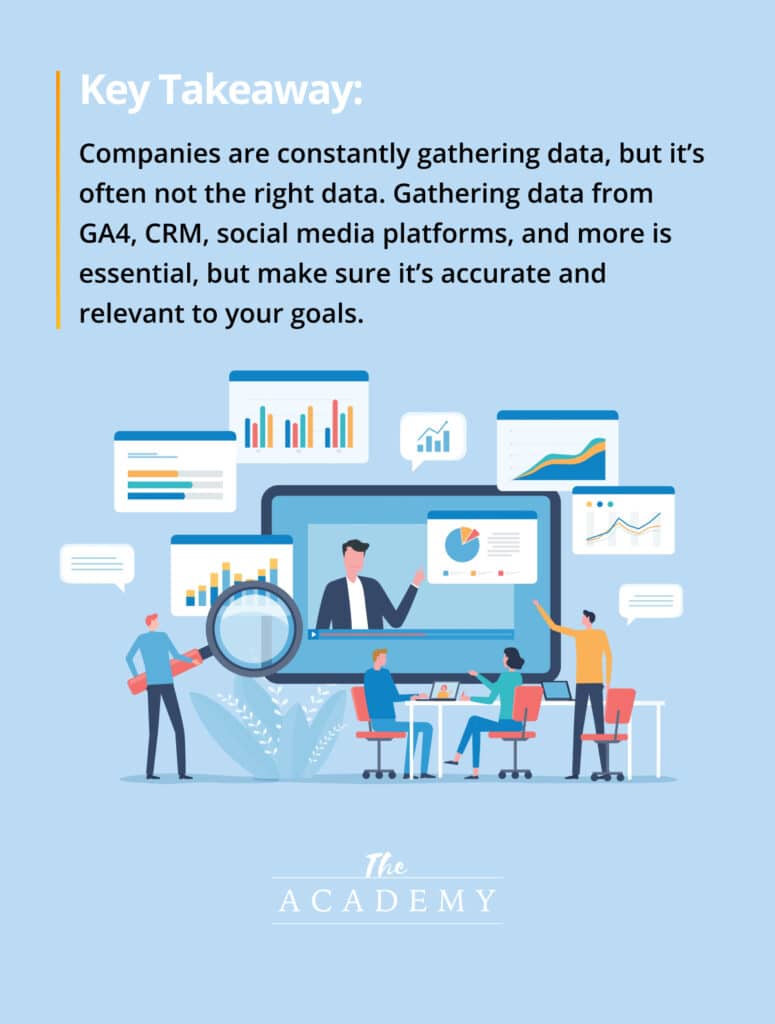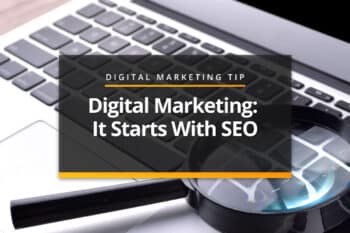
In a data-rich world, successful marketing goes beyond intuition; it’s driven by insights into customer behaviors, preferences, and trends. Data-driven marketing allows businesses to create highly targeted campaigns, optimize budgets, and make informed decisions that fuel growth. By harnessing analytics, companies can reach their ideal audiences more effectively and adapt quickly to changing market dynamics.
Understanding Data-Driven Marketing
In basic terms, data-driven marketing involves collecting, analyzing, and utilizing data about your target audience’s behaviors, trends, and preferences to build a stronger marketing campaign. This approach goes beyond a basic understanding of who you’re marketing to and digs into the core of their behaviors, enabling the creation of a highly targeted marketing plan.
Today, there’s a plethora of data at our fingertips—not just from Google Analytics but also from hundreds of tools that let us collect and analyze customer behavior online, and then put that knowledge to good use. Every touchpoint and interaction is valuable information that helps paint a picture of how best to communicate with your customers.
The Benefits of Data-Driven Marketing

Refined Customer Targeting
Using real data allows you to understand your target market at a much deeper level. With that knowledge, you can accurately target individuals within your ideal market. No longer are you shooting in the dark and hoping to find a potential customer. By gathering or acquiring data, you can create and deliver content that resonates with your target audience, inspires engagement, and increases conversion rates.
For example, a company could analyze the customer path on their site before they submit a form. This information could then inform ad strategies that start customers on that journey more often, increasing the likelihood they’ll take the desired action.
Optimizing Marketing Spend
Every company’s resources are finite, and marketing budgets are often particularly limited. Data-driven marketing strategies allow you to ensure those dollars are spent wisely, removing the need to guess. Tools like GA4 enable data collection to identify which keywords, campaigns, and tactics offer the best ROI, helping you focus spending accordingly.
For instance, tracking the cost per acquisition (CPA) across all platforms can help determine whether Google Ads, social media ads, or SEO optimization provides better value for money.
Real-Time Insights
Many data tools allow companies to pull real-time data from their site, providing a quicker understanding of whether a tactic is working. This enables fast pivots in spending or targeting and allows a doubling down on what’s actively working. If one ad campaign yields an excellent return while another lags, you can quickly shift funds to maximize returns. Conversely, you might consider allocating additional budget to a lagging campaign if it’s crucial and shows potential for improvement.
Improved Customer Retention
Data-driven marketing isn’t just about acquiring new customers; it’s also key to retaining them. By tracking customer interactions, feedback, and behavior, companies can identify pain points and address them to ensure a seamless experience. Predictive analytics and forecasting can also help prevent potential customer losses, as retaining customers is far more cost-effective than acquiring new ones.
How to Implement Data-Driven Marketing

1. Set Clear Goals and Objectives
Set clear, SMART (Specific, Measurable, Attainable, Relevant, and Time-Bound) goals and objectives. Define what success looks like—whether it’s increased brand awareness, higher sales, more website traffic, or newsletter growth. A clear objective guides your data collection and analysis.
2. Collect the RIGHT Data
Companies are constantly gathering data, but it’s often not the right data. Gathering data from GA4, CRM, social media platforms, and more is essential, but make sure it’s accurate and relevant to your goals. For instance, if you’re focused on social media engagement, don’t get caught up in site traffic data, as this could mislead your campaign evaluation.
3. Use Advanced Analytics Tools
Leverage tools like HubSpot or Google Data Studio to visualize and interpret your data. It’s often hard to see the big picture with numbers alone, but visualizations make it easier to track progress, understand performance, and communicate insights to others.
4. Segment Your Audience
Divide your audience into meaningful segments based on the data you’ve collected. Segmentation can be based on demographics, engagement level, location, and more, allowing you to craft a tailored marketing strategy for each group.
5. Test and Refine Your Campaigns
Data-driven marketing only succeeds with a mindset of continual improvement. Data is valuable only if you take action and learn from it. Run A/B tests to identify what works best, monitor your campaigns, and adjust based on engagement and conversions. If video posts perform best on social media, consider creating more video content.
In the end, data-driven tactics are only useful when you’re flexible and ready to adapt. This adaptability allows companies to maximize their marketing budgets and drive sustained business growth.
Leverage Data for Sustainable Growth
Data-driven marketing empowers businesses to connect more effectively with their audience by refining targeting, optimizing spend, and making real-time adjustments. Leveraging data enhances customer retention and helps address customer needs proactively, ultimately driving sustainable growth. Although it requires an initial investment, the long-term benefits—better targeting, resource efficiency, and stronger customer relationships—make data-driven marketing essential. Embrace data to unlock more impactful, resilient marketing strategies.
Most Popular Articles

Seeing Favicons in Your Google Search Results? Here’s Why…
Have you noticed anything different in your Google Search results lately? Google added tiny favicon icons to its organic search results in January. It was…

Business Growth and Digital Marketing News & Tips 11-17-24
Are you encouraging and rewarding innovation? Lee Cockerell is the former Executive Vice President of Operations at Walt Disney World. A lover of traditional red…

Business Growth and Digital Marketing News & Tips 11-27-24
A culture of gratitude "Feeling gratitude and not expressing it is like wrapping a present and not giving it." – William Arthur Ward Beyond being…








